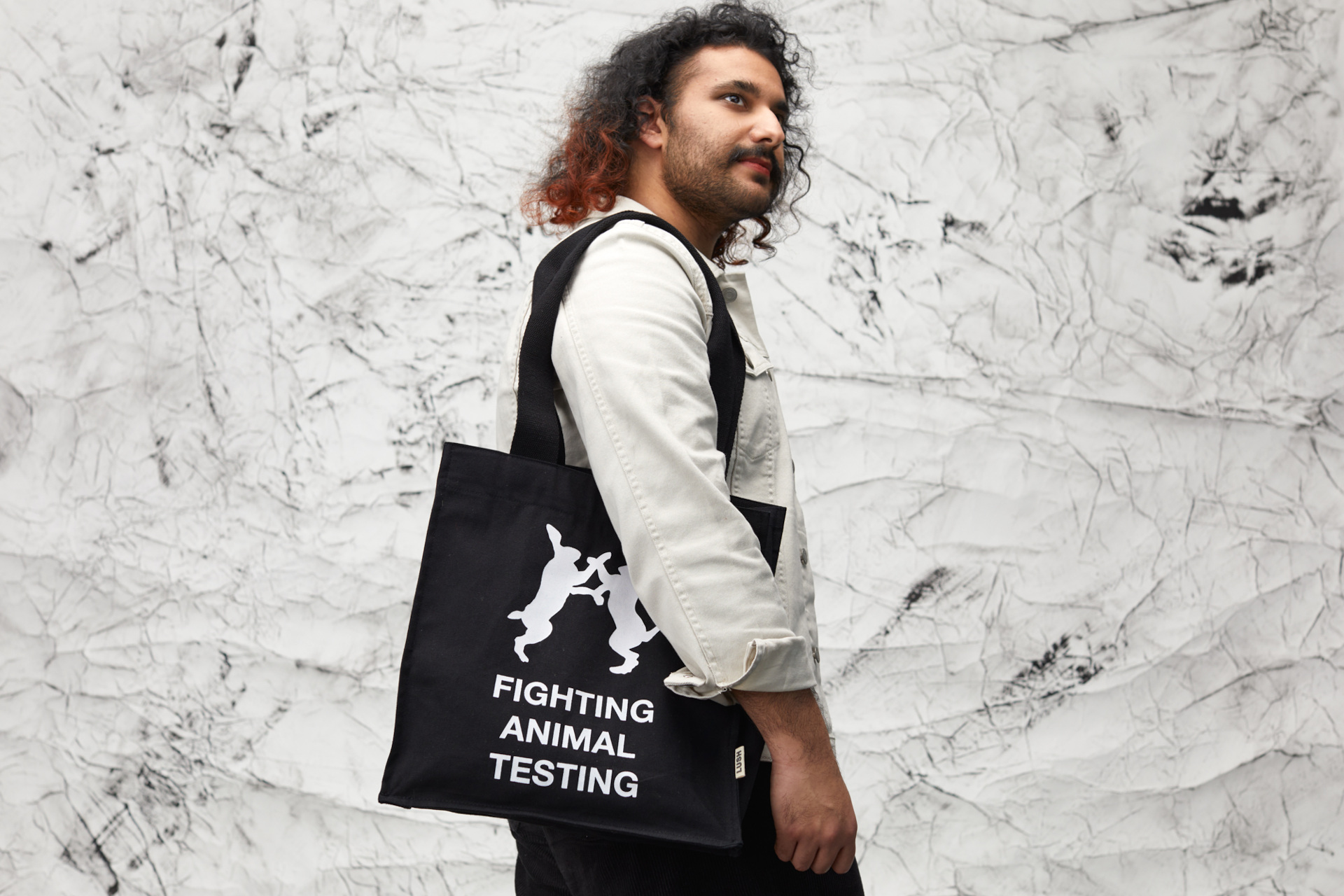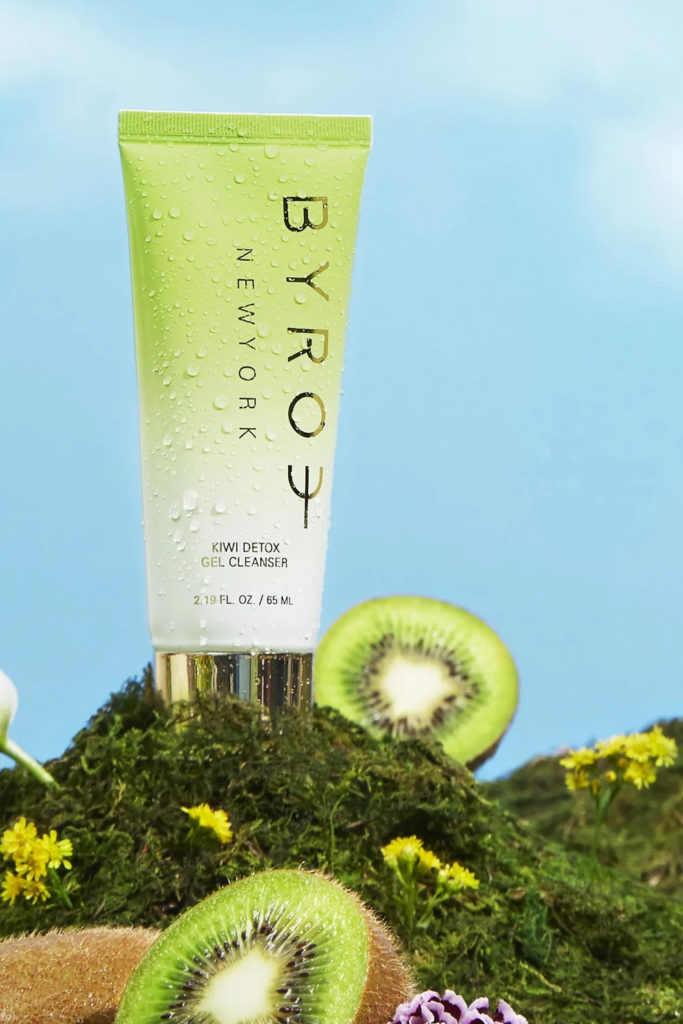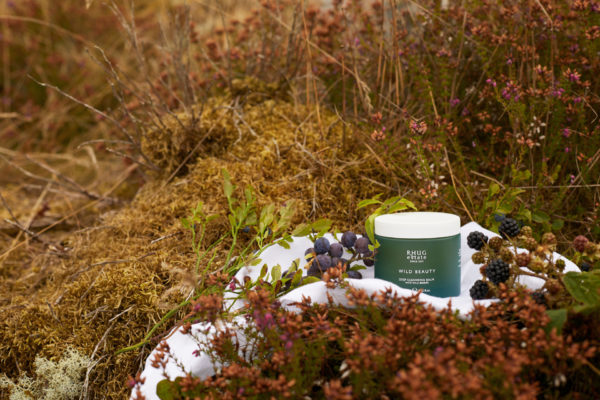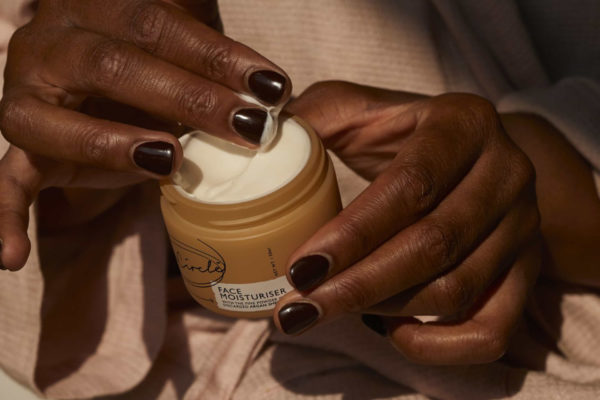What Is Animal Testing?
By
2 years ago
LUSH tells us why we're still needed in the fight against animal testing
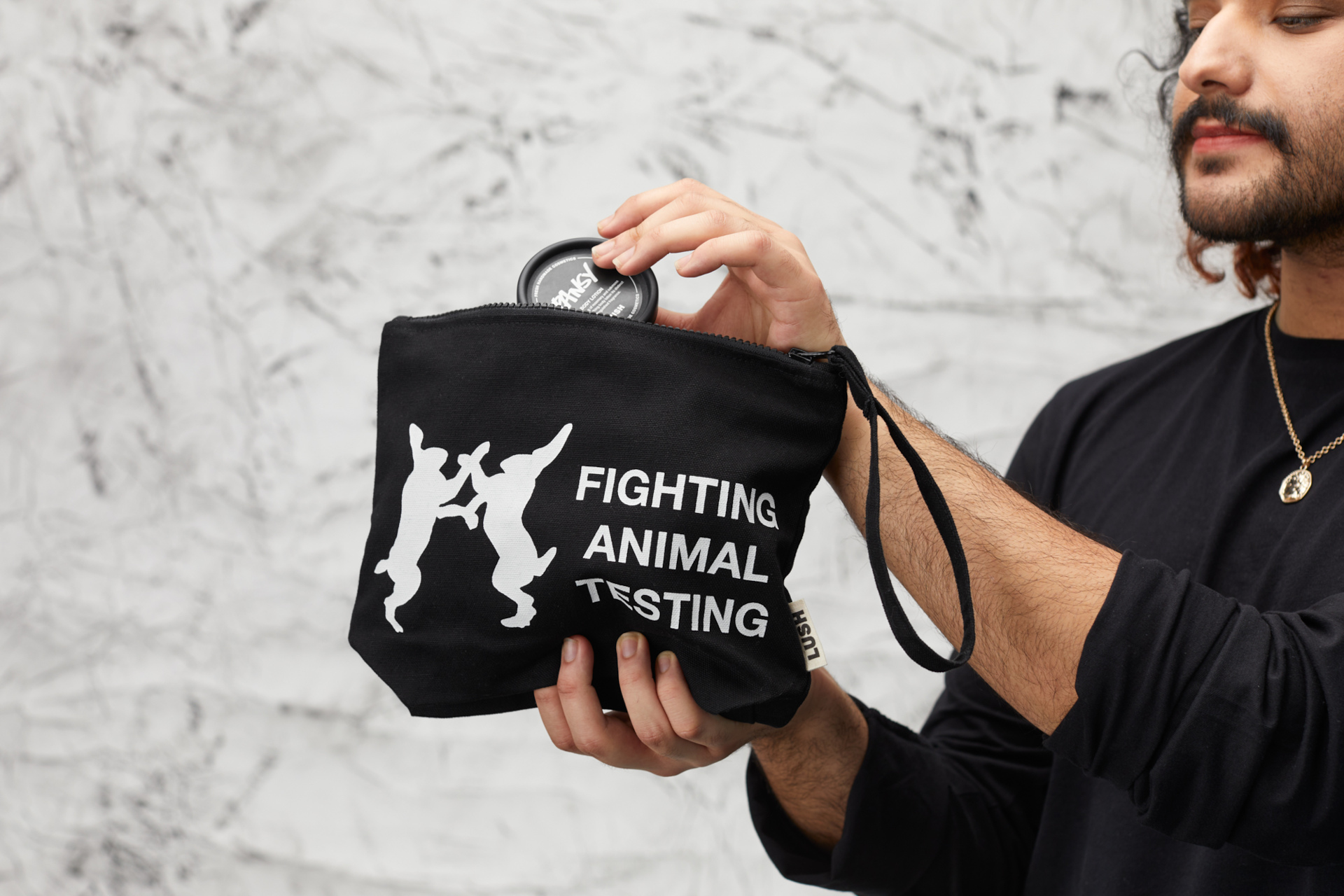
It’s a term we’re all now quite familiar with – especially since it’s been popping up in the news more often than not this year. We spoke to Hilary Jones, Ethics Director at LUSH, to break down what’s involved in animal testing and what we can do to help put a stop to it.
What Is Animal Testing?
Animal testing refers to procedures that are performed on living animals, usually for the purpose of furthering research into basic biology and diseases, assessing medicinal products and testing the safety of consumer products like cosmetics, household cleaners, food additives, pharmaceuticals and industrial chemicals. All procedures can potentially cause these animals physical pain and stress, as well as a lot of suffering – and while some animals are reused for later experiments, many are killed at the end of the experiment they are used for.
‘Animal testing happens in a vast range of areas, from testing medicines, armaments and defence testing, toxicity testing of everyday chemicals and ingredients and, unfortunately, even cosmetics,’ adds Hilary. ‘In the UK, Europe and North America the most common misconception is the belief that all animal testing ended with the ban on cosmetics testing in Europe.’
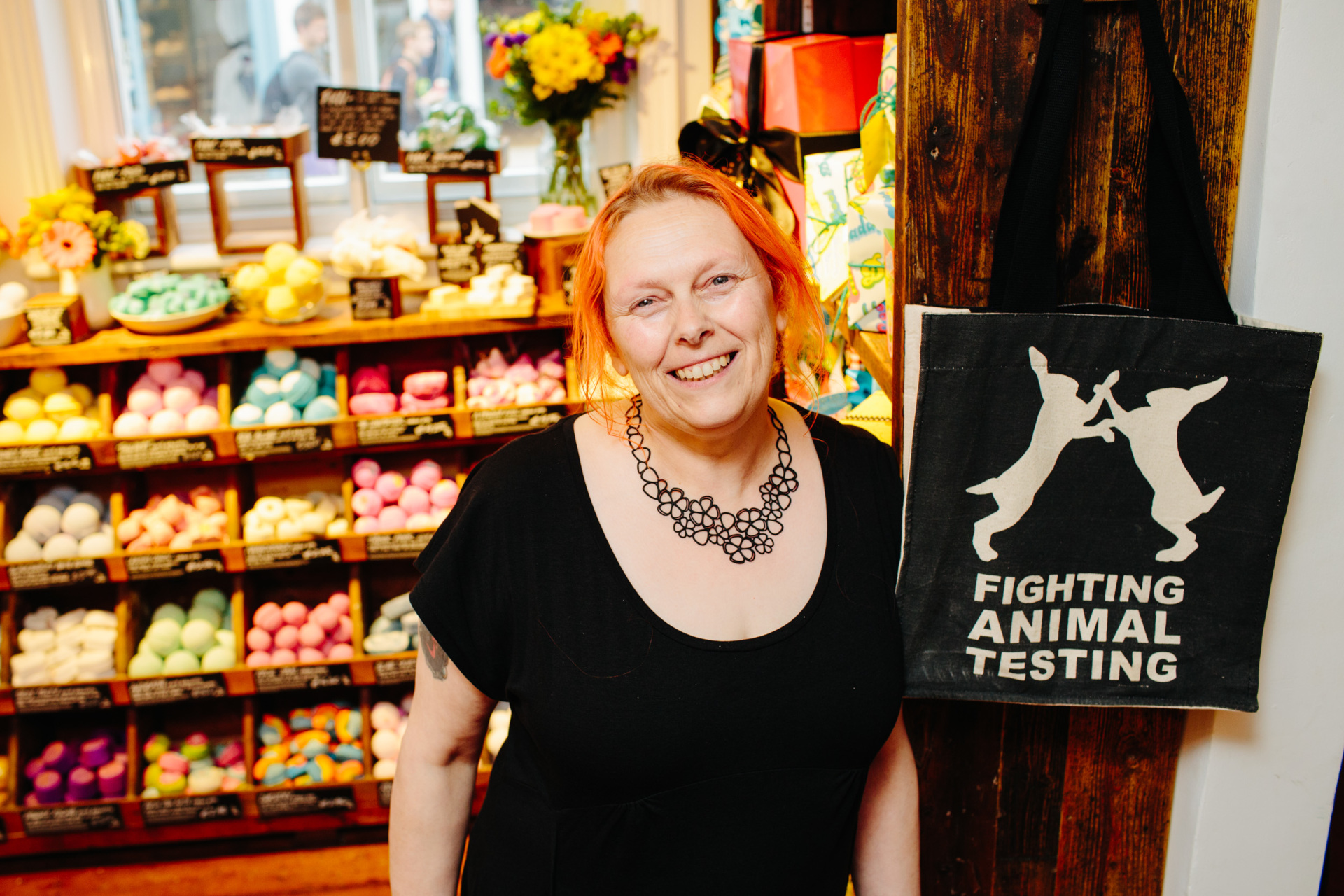
Hilary Jones, Ethics Director at LUSH
What are the drawbacks of animal testing?
‘It goes without saying that animal testing involves great suffering to the animals used, but beyond that animals are also not very good models to show what effects will happen in humans, due to the many differences between species,’ says Hilary.
This means there could be adverse effect for humans as well as the animals that are being tested on. ‘Not only is there potential risk to humans where safety testing has been conducted on animals rather than human modelling, but there is also a holding back of progress. All new medicines are tested first on animals, and only when shown to be safe in animals can they progress to human studies. This is likely screening out many advances in human biology, where the tested drug had unwanted effects on animals and therefore could not progress to human testing. Aspirin is often held up as an example of this, because if it were a new development today it would likely have never progressed to humans due to the ill effects it would have shown on many animals.’
It’s also quite well known that animal testing is expensive and uses a lot of resources (the main one being the animals themselves). ‘Animal testing is an intensive practice. It is expensive and wasteful, requires the mass breeding of millions of animals and all the resources that husbandry requires. It has high energy use and large outputs of waste; all to produce data that is not relevant to humans.’
So, what’s stopping us from making the change? ‘The move to more modern, human relevant tests requires re-training of scientific staff and laboratories being redesigned and equipped to undertake these new types of tests. It is thought that because of the whole historic infrastructure, uptake of new test methodologies is slower than it could be and even resisted to some degree.’
Are there any alternatives to animal testing?
Luckily, there are people who are developing alternative means of testing that doesn’t bring harm to animals. ‘There are enormous strides happening in new approach methodologies (NAMs),’ explains Hilary. ‘This can be anything from growing human skin or eye cells in petri dishes, which can then be exposed to substances and the tiniest effects, to mutations of individual cells that can be observed under microscopes. There’s also organs on chips – where biology and engineering come together to create human body organs and functions on a microchip – which can then be exposed and studied. Another area that is expected to have huge developments soon is computer modelling and AI, giving us the chance to do much of the testing and prediction work inside the software of a computer.’
What impact has animal testing had on us and the way we shop?
It’s possibly one of the biggest things we look out for when shopping these days, especially when it comes to cosmetics. A YouGov survey revealed that 73 percent of Brits are opposed to the testing of both ingredients and completed cosmetics on animals, while 41 percent and 44 percent said they oppose the testing of completed medicines and medical ingredients on animals respectively.
‘The greatest level of public awareness is within cosmetics testing, where the public have overwhelmingly come out against the idea that animals should suffer for cosmetics and vanity products,’ said Hilary. ‘The public spoke in their millions for many years to convince the EU to enact legislation banning cosmetic animal testing; legislation which was world-leading and caused many other countries to follow suit. The public boycotting of tested cosmetics is now embedded behaviour.’
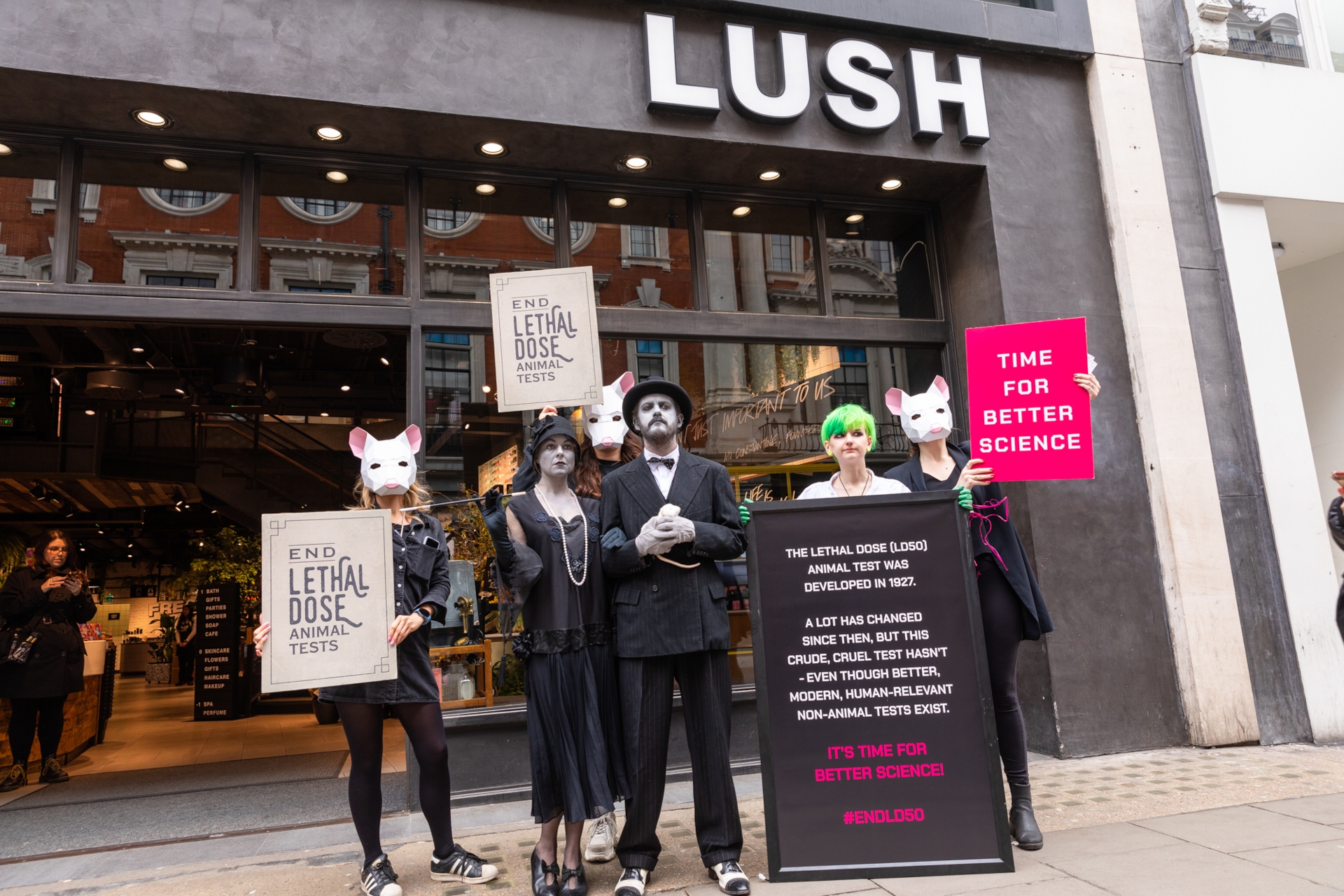
LUSH teamed up with Animal Aid earlier this year to call for an end to lethal dose animal tests. You can sign the petition online at endanimaltests.org
However, it was recently revealed that the UK government has been granting animal testing licenses (the exact number is unknown) for cosmetic ingredients since 2019, following EU chemical regulations – despite the UK having left the EU in 2020, and a general ban against animal testing for beauty products and cosmetics having been active in the UK since 1998. ‘The public are often deliberately kept in the dark about these issues. It is in the interest of industries and the government to keep them that way, because they fear public outcry would disrupt business-as-usual and that change would be demanded. That is why the UK government have kept these licences secret – and it is why so many animal protection organisations have been fighting hard to keep these issues in front of the public.
‘The public drive change, without them things remain the same behind closed doors. By choosing where you spend your money you have a real say in how you want the world used to bring you consumer goods. But pressure needs to be brought on governments too, because regulators need to bring their requirements up to date with the latest testing methods. By removing the need for animal test data completely, companies and laboratories could and would make the switch to non-animal methods more quickly. While governments demand animal test data in order to classify something as safe, companies will continue to have to do these tests. By removing that demand and allowing more modern, human relevant data to be used, animal testing could be ended in our lifetime.’
Will animal testing become obsolete in the future?
‘Animal tests have not served us well. It is a hundred-year-old science and it was the best thing we had then, but now we have powerful tools that can give faster and more accurate data,’ says Hilary. ‘We just need the regulators and companies to have the courage to sweep aside these old ways and wholeheartedly get behind the new emerging technologies with funding, and support and transfer the mistaken trust they have in animal testing to these new test methods.
‘Animal testing has never gone through the validation processes that new technologies are required to – if we put it under this same scrutiny we would abandon it tomorrow for the blunt and ineffective tool it is.’
EXPLORE
You can find out more about LUSH’s ongoing campaign against animal testing at lush.com
Hilary’s Reading List
- ‘The Flaws and Human Harms of Animal Experimentation’ by Aysha Akhtar, ncbi.nlm.nih.gov
- ‘Recent efforts to elucidate the scientific validity of animal-based drug tests by the pharmaceutical industry, pro-testing lobby groups, and animal welfare organisations’ by Jarrod Bailey and Michael Balls, bmcmedethics.biomedcentral.com
- ‘Arguments Against Animal Testing’ by Cruelty Free International, crueltyfreeinternational.org
- ‘Animal Testing Isn’t Just Ineffective. It’s Holding Us Back’ by Jessica Scott-Reid, sentientmedia.org
- ‘Where do Britons stand on animal testing?’ by Connor Ibbetson, yougov.co.uk
- ‘Review of Evidence of Environmental Impacts of Animal Research and Testing’ by Katherine Groff, Eric Bachli, Molly Lansdowne and Theodora Capaldo, mdpi.com
Images courtesy of LUSH




